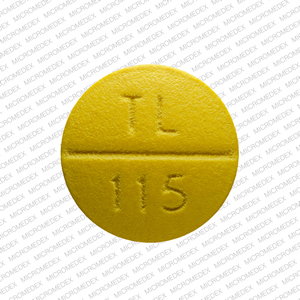Prochlorperazine Interactions
There are 690 drugs known to interact with prochlorperazine, along with 12 disease interactions, and 2 alcohol/food interactions. Of the total drug interactions, 96 are major, 581 are moderate, and 13 are minor.
- View all 690 medications that may interact with prochlorperazine
- View prochlorperazine alcohol/food interactions (2)
- View prochlorperazine disease interactions (12)
Most frequently checked interactions
View interaction reports for prochlorperazine and the medicines listed below.
- Adderall (amphetamine / dextroamphetamine)
- Aspirin Low Strength (aspirin)
- Ativan (lorazepam)
- Benadryl (diphenhydramine)
- Colace (docusate)
- Cymbalta (duloxetine)
- Eliquis (apixaban)
- Fentanyl Transdermal System (fentanyl)
- Fish Oil (omega-3 polyunsaturated fatty acids)
- Flonase (fluticasone nasal)
- Lexapro (escitalopram)
- Lyrica (pregabalin)
- Metoprolol Succinate ER (metoprolol)
- Metoprolol Tartrate (metoprolol)
- MiraLAX (polyethylene glycol 3350)
- Morphine Sulfate ER (morphine)
- Nexium (esomeprazole)
- Norco (acetaminophen / hydrocodone)
- Paracetamol (acetaminophen)
- ProAir HFA (albuterol)
- Symbicort (budesonide / formoterol)
- Synthroid (levothyroxine)
- Tylenol (acetaminophen)
- Vitamin B12 (cyanocobalamin)
- Vitamin C (ascorbic acid)
- Vitamin D3 (cholecalciferol)
- Xanax (alprazolam)
- Zofran (ondansetron)
- Zoloft (sertraline)
- Zyrtec (cetirizine)
Prochlorperazine alcohol/food interactions
There are 2 alcohol/food interactions with prochlorperazine.
Prochlorperazine disease interactions
There are 12 disease interactions with prochlorperazine which include:
- dementia
- acute alcohol intoxication
- CNS depression
- hematologic toxicity
- hypotension
- liver disease
- breast cancer
- glaucoma
- NMS
- respiratory disorders
- seizure disorders
- neuromuscular reactions
More about prochlorperazine
- prochlorperazine consumer information
- Compare alternatives
- Pricing & coupons
- Reviews (461)
- Drug images
- Side effects
- Dosage information
- Patient tips
- During pregnancy
- Drug class: phenothiazine antiemetics
- Breastfeeding
Related treatment guides
Drug Interaction Classification
| Highly clinically significant. Avoid combinations; the risk of the interaction outweighs the benefit. | |
| Moderately clinically significant. Usually avoid combinations; use it only under special circumstances. | |
| Minimally clinically significant. Minimize risk; assess risk and consider an alternative drug, take steps to circumvent the interaction risk and/or institute a monitoring plan. | |
| No interaction information available. |
See also:
Further information
Always consult your healthcare provider to ensure the information displayed on this page applies to your personal circumstances.


